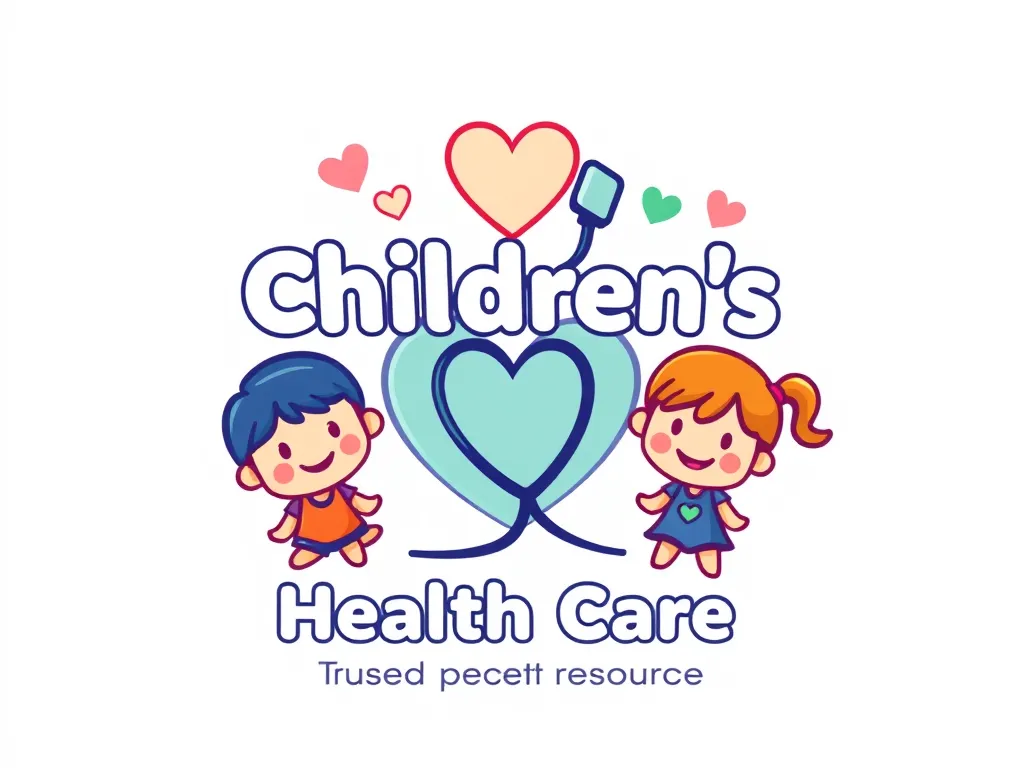Essential Insights into Children's Primary Care Strategies

A Comprehensive Guide to Children's Primary Care
Children's Primary Care is a specialized field of medicine that focuses on the physical, emotional, and developmental health of infants, children, and adolescents. It plays a crucial role in ensuring that children receive the necessary healthcare services tailored to their specific needs. This holistic approach encompasses preventive care, management of acute and chronic illnesses, and guidance on growth and development, thus serving as a foundation for healthy growth during the formative years of life.
Children's Primary Care emphasizes the importance of regular health check-ups as part of a child's overall well-being. These visits allow healthcare professionals to monitor growth, conduct developmental screenings, and establish a relationship with both the child and parents, leading to a more focused and personalized care approach. During these visits, pediatricians can also provide education about healthy lifestyle choices and address any concerns parents may have regarding their child's health.
Preventive care is a cornerstone of Children's Primary Care, as it includes vaccinations, health screenings, and ongoing health education for families. Vaccines protect children against various infectious diseases that could otherwise lead to severe complications. In addition, guidelines for nutrition and active living are established during check-ups to help foster healthier habits early on. This proactive approach not only helps detect potential health issues early but also promotes a lifetime of wellness and healthy habits.
As children face a range of unique health challenges, understanding common childhood illnesses is vital for parents and caregivers. Awareness of how to identify symptoms and manage conditions like allergies, asthma, and ear infections ensures children's health is supported. Pediatricians play a critical role in educating parents about these issues, providing insights on treatment options and when to seek further medical advice, thereby empowering families to handle common health challenges with confidence.
Another significant aspect of Children's Primary Care is mental health support. Many children experience anxiety, depression, or stress due to various factors ranging from school pressures to family dynamics. Pediatricians are equipped to help identify these issues and refer families to appropriate resources. Addressing mental health is as crucial as physical health, as it lays the groundwork for a child's well-being, social development, and overall success in life.
Preventive Care in Children's Health
Regular check-ups are essential components of preventive care in Children's Primary Care. These visits allow pediatricians to track growth and development milestones effectively. They also provide a platform for parents to ask questions, seek advice on parenting challenges, and learn about relevant health issues. By maintaining a consistent schedule of health check-ups, potential health issues can be identified and managed before they escalate further.
For comprehensive pediatric care, consider visiting Children's Primary Care for expert guidance and support.
Vaccination schedules are a critical element of preventive care, safeguarding children from various diseases. The Center for Disease Control and Prevention (CDC) provides guidelines on immunizations, ensuring that children are adequately protected against illnesses like measles, mumps, rubella, and whooping cough. Parents must stay informed about vaccination schedules to ensure their children receive these essential shots on time and protect not only their child but the community as well.
Nutrition guidelines are fundamental in shaping healthy eating habits among children. Pediatricians provide recommendations on balanced diets rich in fruits, vegetables, whole grains, and healthy fats. Educating parents about proper portion sizes and the importance of family mealtimes can help instill positive dietary habits early on, setting the stage for a healthy lifestyle as children grow.
Developmental screenings during regular check-ups help pediatricians evaluate a child's developmental progress. These screenings assess various skills, such as communication, motor skills, and social behaviors, helping identify any potential developmental delays. Early diagnosis allows for timely interventions, ensuring children receive the necessary support to thrive and learn alongside their peers.
Health education for parents is an essential component of preventive care. It involves providing families with information on topics such as nutrition, exercise, sleep hygiene, and common childhood illnesses. By equipping parents with knowledge, pediatricians empower them to make informed decisions regarding their child's healthcare, leading to better health outcomes in the long run.
Common Childhood Illnesses
Understanding common colds and flu is essential for parents as these are frequent ailments during childhood. While they typically resolve with home care, knowing how to manage symptoms, when to seek medical help, and the difference between viral and bacterial infections can ease parental concerns and ensure timely treatment.
Allergies are common in children, and managing them requires careful observation and prevention strategies. Parents can benefit from guidance on recognizing symptoms, avoiding triggers, and using medication options, including antihistamines and epinephrine injectors when necessary. Pediatricians often work closely with allergists for comprehensive care.
Ear infections are one of the most prevalent issues among children, often resulting from colds. They can cause pain and irritability in young children. Understanding the signs and symptoms, such as tugging at the ear or excessive crying, can help parents know when it's time to consult a pediatrician for possible treatment options, which may include antibiotics.
Asthma is a chronic condition that starts in childhood and requires careful management. Pediatricians can develop an asthma action plan tailored to each child, including medications, trigger avoidance, and emergency response. Teaching children how to recognize asthma symptoms is vital for effective management and keeping them safe during activities.
Navigating viral versus bacterial infections can be challenging for parents. Understanding the differences helps ensure appropriate treatment, as antibiotics are ineffective against viruses. Educating parents on symptoms, duration, and when to consult a doctor is crucial for proper management and prevention of complications in children.
Pediatric Nutrition
Healthy eating habits for kids are essential for proper growth and development. Encouraging children to try a variety of foods and promoting a balanced diet rich in essential nutrients lays the groundwork for lifelong health. Pediatricians often recommend regular mealtimes and family meals to foster positive eating behavior and choices.
Meal planning tips for families can play an integral role in promoting healthy eating. Involving children in meal preparation can spark their interest in food, encouraging them to make healthier choices. By planning meals ahead of time, parents can ensure that they have nutritious options readily available for busy days.
Addressing obesity in children is becoming increasingly important as rates continue to rise. Pediatricians provide strategies for achieving and maintaining a healthy weight through balanced nutrition, physical activity, and lifestyle changes. Family involvement is crucial in promoting a culture of health and well-being within the home.
Snacks can play a significant role in children's diets, serving as an opportunity to introduce healthy options throughout the day. Snacks should consist of nutrient-dense foods that support energy levels and growth, rather than empty calories, contributing to overall dietary patterns that promote health.
Vitamins and supplements can be valuable for growing children, especially if their diets lack specific nutrients. Pediatricians can advise parents on the necessity of supplementation based on individual dietary needs and health conditions, ensuring children receive adequate nutrition for optimal development.
Mental Health in Children
Identifying anxiety and depression in kids is critical for timely intervention. Pediatricians are trained to recognize behavioral signs and symptoms, such as changes in appetite or sleep patterns, and can initiate referrals for therapy or counseling when necessary to support children's emotional health.
Emotional intelligence is the foundation of mental well-being. Educating children on feelings, empathy, and communication can help them develop effective coping mechanisms and strong social skills, enabling them to navigate relationships and life challenges successfully.
Coping strategies for stress are essential tools for children facing daily pressures. Pediatricians might suggest mindfulness techniques, physical activity, or creative expression through art or writing, empowering children to manage their emotions and stressors constructively.
Family plays a pivotal role in children's mental well-being. Open communication, emotional support, and fostering a safe environment for discussion can significantly impact how children cope with life's challenges. Parenting styles greatly influence children's resilience and emotional health.
Resources for mental health support are essential for families seeking help. Pediatricians can connect parents with therapists, support groups, and community resources, providing the necessary tools and support systems to nurture children's mental health effectively.
Parenting and Pediatric Care
Navigating healthcare decisions as a parent can be overwhelming. Children's Primary Care emphasizes the importance of active participation in healthcare decisions. Collaborating with pediatricians helps parents understand treatment options and make informed choices regarding their child's health and well-being.
Building a relationship with your child's pediatrician is fundamental in Children's Primary Care. Continuous visits establish trust and communication, enabling parents to feel comfortable discussing their child's health concerns and needs, which ultimately leads to better health outcomes.
Understanding medical jargon and procedures can help parents feel more equipped when attending appointments. Pediatricians can simplify concepts and offer explanations that empower parents, making them more informed participants in their child's healthcare journey.
Effective communication with caregivers is paramount. Keeping clear records of medical history, medications, and any observed changes ensures that caregivers are well-informed and can provide the best possible care for children during appointments or emergencies.
Advocacy for your child's health needs is essential in Pediatric Care. Parents are encouraged to ask questions, seek second opinions, and remain proactive in understanding available resources to ensure their child receives comprehensive health services tailored to their specific needs.
Technology in Children's Healthcare
Telemedicine benefits for pediatric care have become increasingly prominent, providing families with convenient access to healthcare services. Virtual visits allow for consultations without the need for travel, reducing stress on children and parents alike while facilitating ongoing care during unexpected circumstances.
Health apps for monitoring children's health offer parents valuable insights into their child's well-being. These tools can help track dietary habits, physical activity, and medical appointments, enabling informed decision-making and a proactive approach to health monitoring.
The impact of screen time on health is a concern for many parents, who seek guidance on balancing technology use. Pediatricians can offer recommendations on appropriate screen time limits and emphasize the importance of active play and face-to-face interactions to support healthy development.
Innovations in children's medical devices, such as wearable health monitors and telehealth tools, have enhanced the landscape of Pediatric Care. These advancements promote early detection and consistent health tracking, ultimately improving health outcomes for children.
Data privacy concerns for children's health information are paramount. Educating parents about digital privacy and security measures ensures children’s health data remains protected, fostering trust in the healthcare technologies utilized in Pediatric Care.
